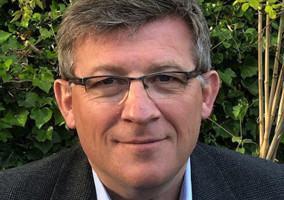The Charity Commission has opened a regulatory compliance case into domestic abuse charity Advance, after current and former staff described “bullying” and a “toxic” working environment.
An independent investigation looked into some bullying allegations at the charity in 2022, and did not uphold the majority of claims, but several people told Civil Society they felt it had not been robust enough.
The Commission has now opened a regulatory compliance case into the charity, to examine “a range of matters related to the charity’s governance”.
Advance said it is cooperating fully with the Commission’s compliance case, raised last week, adding that it is confident that the inquiry “will find no wrongdoing”.
The charity told Civil Society: “It is deeply upsetting to all of us that some staff did not have a positive experience of working at Advance. We take the safeguarding of our staff and service users extremely seriously.
“The challenges of the pandemic and in the year since that led to a significant rise in reports of domestic abuse has also affected all our staff. We acknowledge the additional stress that this has had on everyone, and we continue to work hard to address this.”
Advance recently announced that after over six years as chief executive, Niki Scordi will be stepping down on 31 October 2023.
Staff ‘walking on eggshells’
A number of current and former staff at the charity said it could be a “toxic” place to work and that “staff are often led to tears”.
One source described Scordi’s behaviour towards her staff as “demeaning” and said “complaints are silenced through gaslighting, and complainants left unprotected”.
Another said the CEO “leaves people walking on eggshells from her frequent outbursts, reducing many employees to tears” and another that there was “shouting and screaming”.
One person said: “There exists an embedded bullying culture that no one is willing to address even though people leave the organisation at a shockingly high rate due to this.”
They added people have tried to bring up issues formally and informally “and they get shut down”.
“Sadly, those who bravely take on the challenge to stand up to this behaviour are pushed out, fuelling high staff turnover and undoubtedly impacting the services delivered to survivors.”
A source added: “It truly saddens me to see such a hugely needed charity stray so far from its own values.”
Another said: “The working environment at Advance can only be described as toxic and damaging. It's an organisation led by a woman who openly bullies and intimidates staff at all levels of the organisation.”
They said the trustee board “choose to turn a blind eye”, adding: “You only have to look at the Glassdoor reviews, and staff turnover for the past six years, to understand the magnitude of the problem, and even after staff have left they feel afraid to speak out because of the reputational repercussions they may face.”
A number of Glassdoor reviews also state there are issues at the charity, such as high staff turnover and a “rampant bullying culture”.
Several of the group said the charity was aware of the negative reviews, and the charity was encouraging staff to add their honest reviews to the website.
Independent investigation
A number of staff at Advance previously submitted a whistleblowing complaint last year concerning Scordi, which prompted an independent investigation to look at bullying and safeguarding issues and breach of dignity at work policy.
The report outcome, seen by Civil Society, shows the investigator was unable to substantiate the majority of the concerns raised, but there were three areas in which the concerns were upheld.
The investigation was unable to substantiate unfair treatment in most aspects, but did reach the belief that the chief executive was unfair to one colleague on one occasion.
It also found that the chief executive could be more concise in her verbal communications.
The investigator reached the conclusion that the high levels of stress that the chief executive was under would to some degree have been felt by her colleagues.
A number of sources were not pleased with the organisation’s handling of the complaint, and felt complainants were not protected to the extent they should have been.
The charity said: “Advance received whistleblowing concerns in August 2022 and immediately commissioned an independent investigation which concluded in October 2022. Claims of bullying and harassment were not upheld. The outcomes and recommendations were fully accepted and implemented.”
The incident and the outcomes were self-reported to the Charity Commission “who were satisfied and required no further action” at the time.
“Our CEO and senior leadership team have worked hard to create a safe, open, and inclusive culture where everyone feels valued and respected. We encourage staff to share their views openly and provide feedback through a range of ways, including engagement surveys and staff forums with the senior leadership and the board,” the charity said.
“The staff feedback directly informs changes to our ways of working and to the way we support staff, including a confidential employee assistance programme, extending the staff well-being programme to include counselling in addition to clinical supervisions, offering flexible working arrangements and a pay and benefits review to respond to the pandemic and the cost-of-living crisis.”
The charity said it was committed to safe working practices for staff and service users, supported by its head of safeguarding and two safeguarding trustees.
Challenges with recruitment
Advance, which supports women and children experiencing domestic abuse and sexual violence and women who are involved in the criminal justice system, has seen financial growth over the past several years.
Regulator data for the financial year ending 31 March 2022 puts its total income at more than £6.5m, up from £4.3m the year prior.
Sources told Civil Society the charity was facing recruitment and retention problems, with one saying Advance was “haemorrhaging” staff.
The charity’s staff costs were more than £4.2m in 2021-22, compared to £3.2m the year prior.
This is partially because of an increase in consultants and agency staff fees, and an increase in money spent on training and recruitment. The average number of people employed during the year was up to 114, from 89.
Advance said: “There have been challenges with the recruitment of experienced senior staff in selected areas of the charity’s activities, reflecting the UK employment market. Last year this led to the use of interim resource for short periods while the appropriate permanent personnel could be recruited.
“This included two board members who stepped down from their roles as trustees of Advance to support the senior leadership team in August and October 2022. This provided crucial organisational support in the short term, following due process.”
Charity Commission: ‘We are engaging with the trustees’
Whistleblowers contacted the Charity Commission, which last week opened a regulatory compliance case.
A Charity Commission spokesperson said: “We have opened a regulatory compliance case to examine a range of matters related to the charity’s governance. We are engaging with the trustees to determine our next steps.
“The opening of a compliance case is not itself a finding of wrongdoing and we have made no finding or determination at this point. Our case is ongoing and we cannot comment further at this time.”
Advance said it was cooperating fully with the Charity Commission’s compliance case and was confident that it would “find no wrongdoing”.
Advance: ‘We are committed to continue to improve our ways of working’
The board, chief executive and senior leadership said in a statement: “We are saddened that some staff did not have a positive experience while working at Advance.
“We strive for a positive and safe working environment for our passionate and dedicated staff who go above and beyond in their work every day to ensure the safety of the women and children we support.
“We are committed to continue to improve our ways of working and recognise that we still have work to do. Our main concern is for the best outcome for the women we support and the wellbeing of all our staff.”
Other Articles












